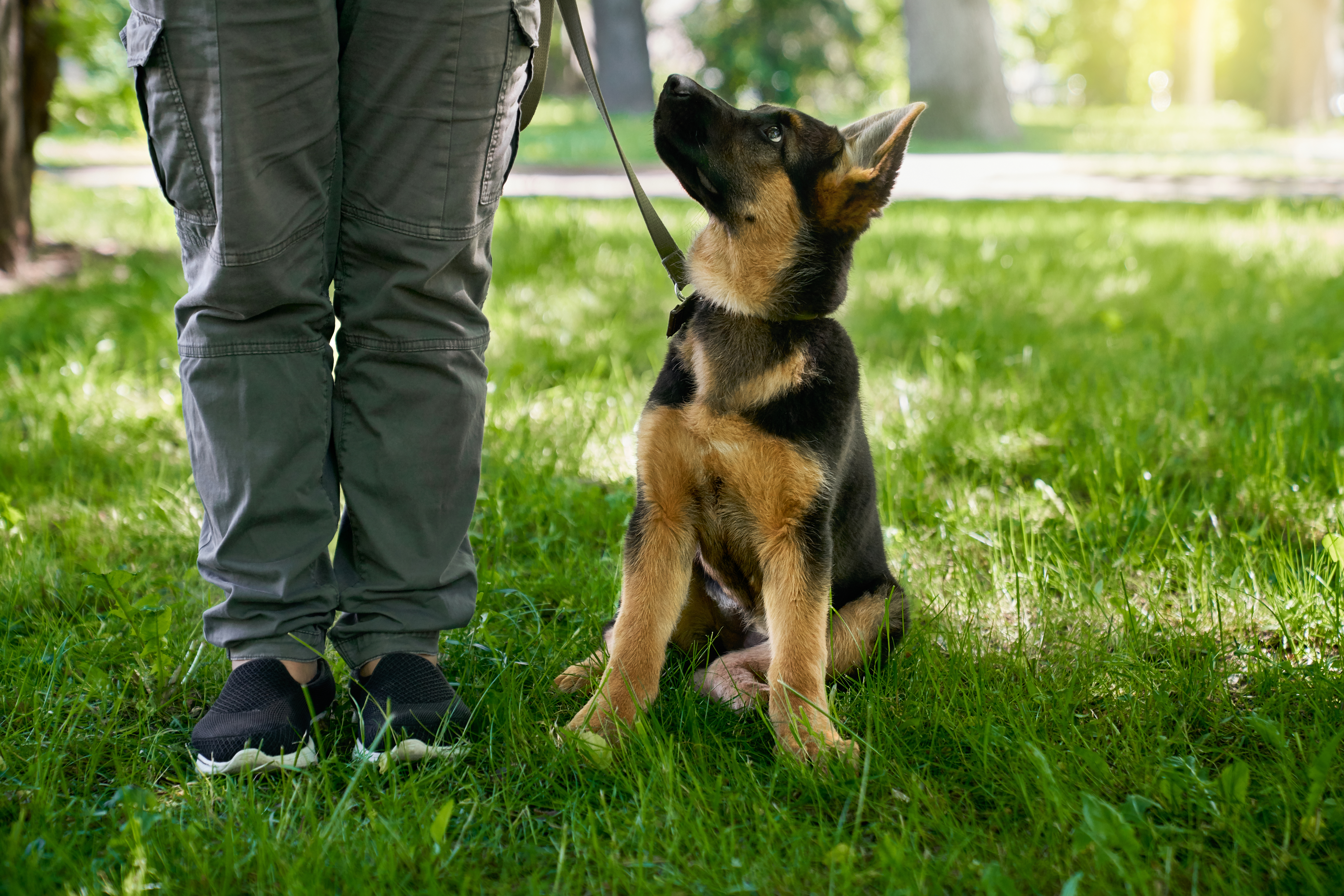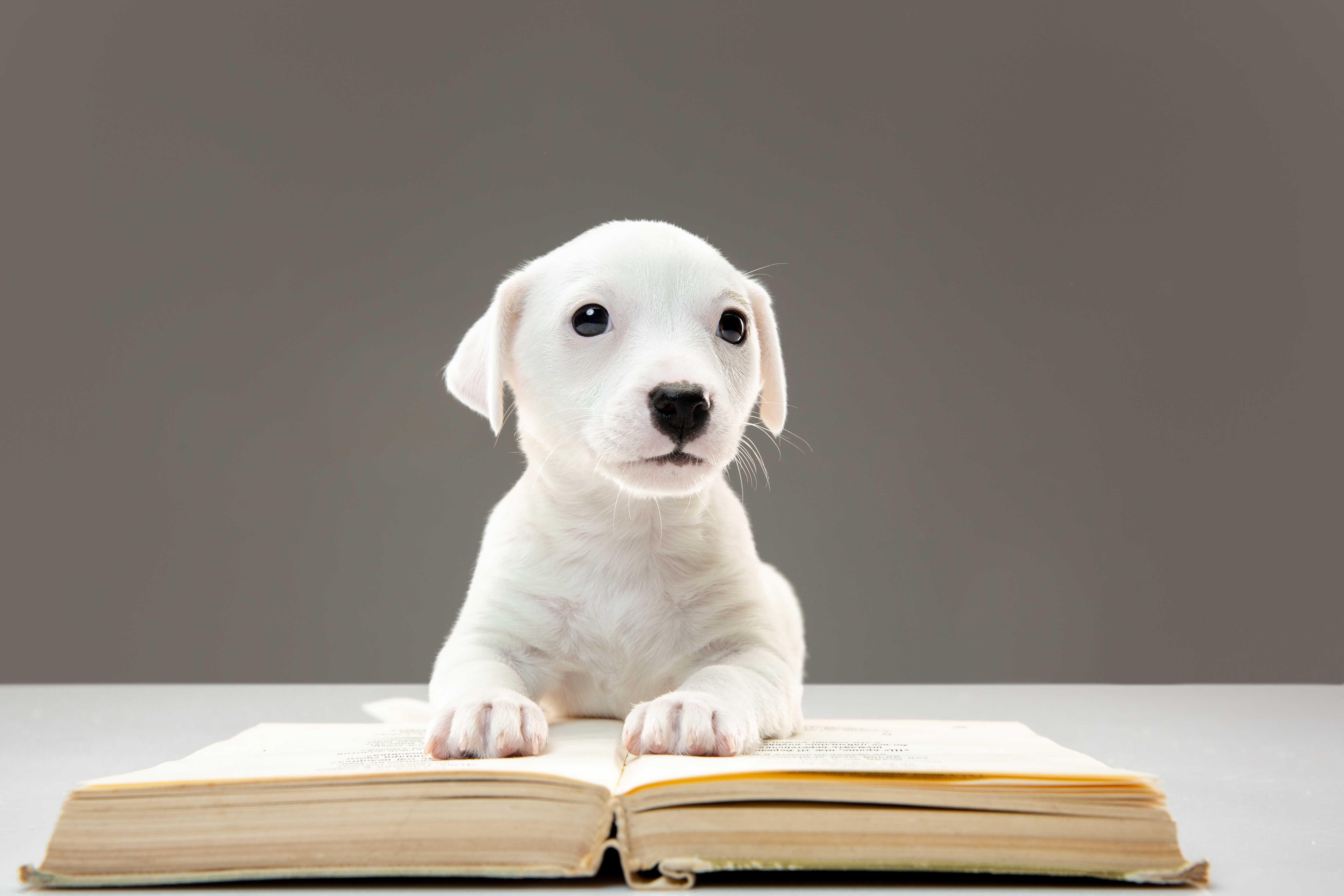
Puppy Classes and Lifelong Impacts
Puppy training and socialization classes are becoming widely available, and the benefits of these classes are easy to see. Puppies go to class and learn basic commands, which makes navigating puppyhood a little easier. However, science has found that the benefits of well-developed puppy classes go beyond just learning a few tricks and avoiding problematic behaviors in the future. These early classes have long-lasting, profoundly impacting developmental, emotional, and social implications, too!
Why Attend A Puppy Class?
Researchers John Scott and John Fuller have performed some of the most extensive dog development studies to date. During that research, they could identify and describe critical periods of development that puppies go through. During these critical periods of development, a puppy’s brain is genetically and neurologically geared to encounter certain situations, scenarios, and events. These periods are dubbed developmental periods.
Positive experiences during these periods result in puppies growing into healthy, functional adult dogs. Missed events or negative experiences during these critical stages of development can result in behavioral deficiencies, emotional instabilities, and reactivity in dogs that manifest as phobias, extreme shyness, and aggression. Puppy classes help promote positive experiences during important developmental periods!

What Happens In A Puppy Class?
The primary goals of a well-designed puppy class should be to permit safe interaction and socialization, interspersed with some training of fundamental commands, such as "sit," "come," and walking on a leash. At the same time, new sights, sounds, scents, and other puppies are in attendance of all shapes and sizes. Most puppy classes allow time for structured socialization, interaction, and play intermingled with fun training activities. In one puppy class, a puppy can meet new people and puppies and experience new situations and locations. If done properly, all of this is accomplished in a positive and safe environment to create a constructive, life-impacting experience.
How Impactful Are The Classes and Experiences?
One study compared dogs that attended training classes as puppies or juveniles to dogs that did not attend puppy training as puppies or juveniles. They found that the dogs that had participated in puppy training classes scored more favorably in areas such as family-dog aggression, trainability, fear, and touch sensitivity. Another study found that aggression, compulsive behavior, destructive behavior, and excessive barking had all been reduced in dogs that had attended puppy socialization and training classes before six months. This was compared to the control group, which included dogs that had attended no classes. A third study found that adult dogs attending training and socialization classes as puppies were less fearful, aggressive, and more social.
The evidence from these additional studies supports Scott and Fuller’s findings that early experiences play a critical role in shaping behavior and temperament in the long term. Puppy classes, if done in an appropriate manner and setting, aid in creating a long-lasting and positive impact on dogs. A poorly designed puppy class - one with little supervision to watch for puppy bullies and doesn’t use positive reinforcement methods - could just as easily negatively impact the puppy for life. For this reason, it is imperative that new puppy owners considering puppy classes should research training instructors and training programs heavily.

Tips for Classes
To prevent incidents, new puppy owners should ensure trainers are experienced in puppy development, socialization, and safe puppy play and interaction. Puppies should never be allowed to run free without supervision or frequent training breaks to ensure play doesn’t escalate to predatory behavior or aggression. Likewise, trainers should never use harsh training techniques or punishments on puppies. Puppy classes should be about building positive experiences, puppy confidence, and the bond between pups and owners.
One More Thing
One of the most important things to remember about training is that a puppy or a dog is never fully "trained." Training is a lifelong process and journey that should be enjoyed by both dog and owner in the most positive and fun manner possible. It starts in puppyhood and continues throughout the dog's life. If started in a fun and positive way, it will be one that dogs will relish even into their senior years. Too often, people graduate from a training class with their dog and think they're done. Yet, training must be learned, typically and often in a class setting, but then reinforced in fun and exciting ways as the dog grows and ages. This ensures that the dog remembers their lessons and that the bond between owner and dog remains strong and intact.
We’re Here to Help!
Are you looking for a puppy training class in your area and don’t know where to start? CKC recommends locating a puppy trainer using the Association of Pet Dog Trainers site. All trainers affiliated with APDT are LIMA-compliant. LIMA is the acronym for Least Intrusive, Minimally Aversive regarding the techniques and methods they use. They are guaranteed to use positive reinforcement methods without pain or fear in training. You can find APDT trainers in your area at this link.










